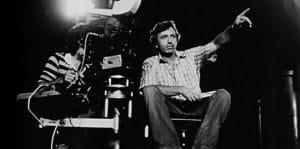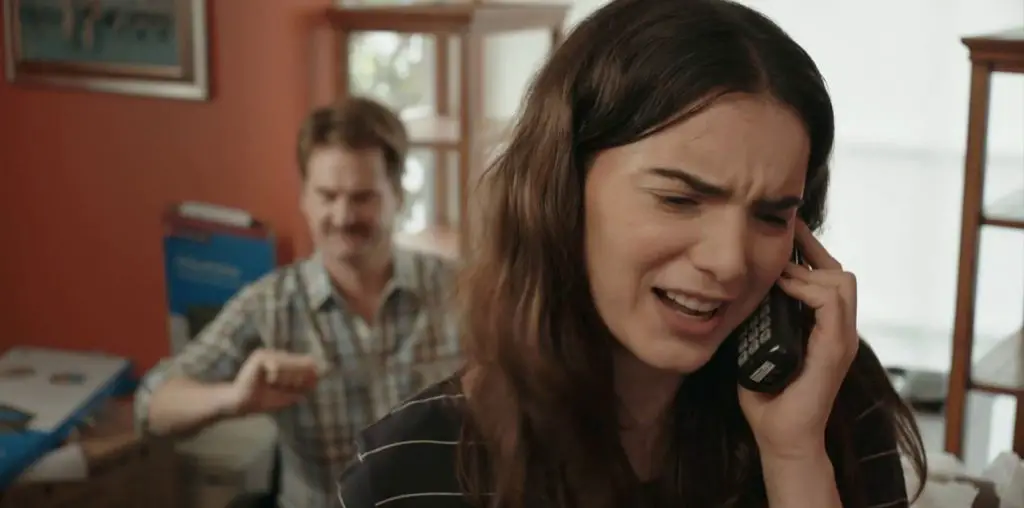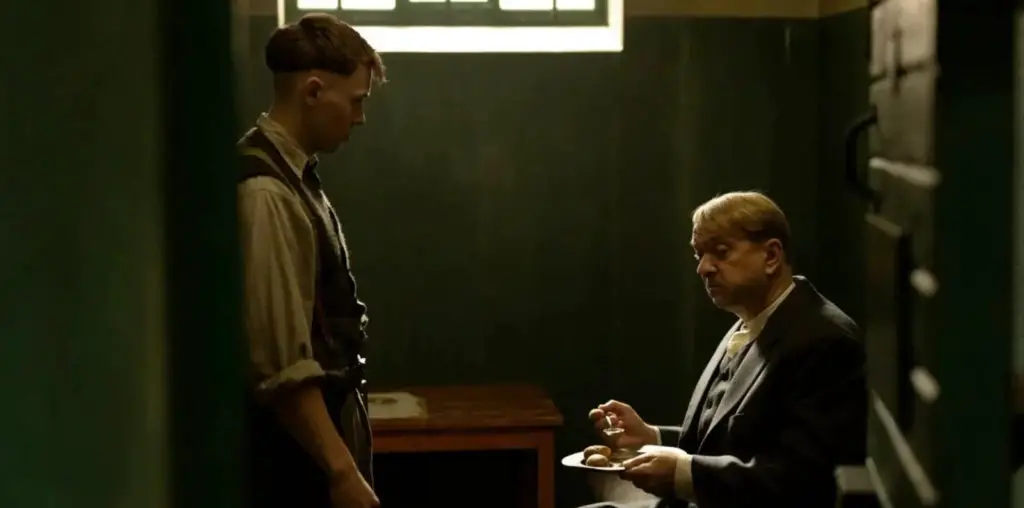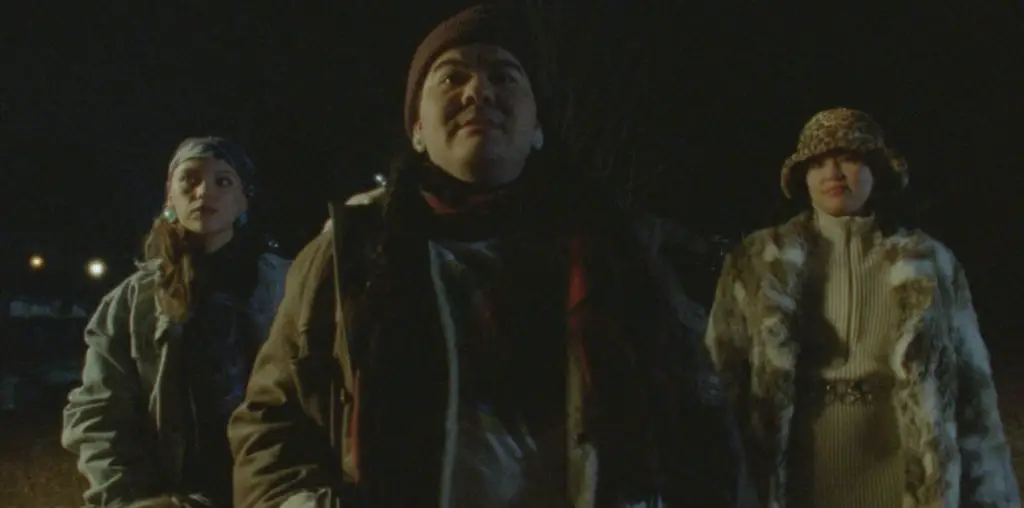
Not everyone who makes it in Hollywood becomes a household name. For every Steven Spielberg or Jodie Foster, there’s a William Stout or a Laura Beth Love. Stout has been the production designer for titles as varied as Return Of The Living Dead and Conan The Barbarian. He has also created some of the most iconic posters of all time, like Wizards and Sherlock’s Last Case. Love is a director, writer, and director of photography who has worked on a number of low budget genre fare. Both are successful, but neither are known outside of a handful of people. Perhaps the most successful person in Tinsel Town that the average person is not familiar with is writer-director Larry Cohen.
Larry Cohen’s filmography spans four decades, with his start coming in 1972 with Bone, and going all the way to 2006, when he did one of the Masters Of Horror titles, Pick Me Up. Altogether, Cohen’s directed twenty-one films. His writing credits are much more copious, numbering a staggering eighty-seven scripts for movies and television. He wrote the screenplays for Phone Booth and came up with the story for Cellular, to name two of his more recognizable films. Cohen’s projects weren’t always successful, but each title has garnered a cult following and a reputation as being better than realized upon its initial release.
Cohen’s 1974 horror movie It’s Alive is the most representative of such a case. The film was given just a single theater run in Chicago after its completion. Long story as to why, but it was given a slightly better release schedule that October. It wasn’t until three years later when management changed at Warner Brothers that it was given a full-on proper release. It’s Alive was a huge success, leading to two sequels and a remake in 2009.
All of this and so much more about Larry Cohen’s life and career is covered in exhaustive detail in the highly entertaining documentary King Cohen. Writer-director Steve Mitchell clearly has a tremendous amount of respect for Cohen and his work. It starts off with his early life and how Larry Cohen’s family weren’t very artistic, so they did not always see eye to eye. It also covers how he was hoping to be a standup for a little while, before segueing into a writer (uncredited and free to start off with). His early TV work seems not to have gotten their just due. Coronet Blue was a serial style program that was abruptly cancelled after thirteen episodes when the star went on to a different show. He was practically forced out of his show The Invaders as he and the producer had very different visions for it.

“Cohen’s projects…garnered a cult following and a reputation as being better than realized…”
Which lands us at the sole issue within the documentary. When discussing these early shows of Cohen’s, there is a lot of talk about how edgy they were compared to anything else on television at the time. But no comparison is given, so how these shows differed from their contemporaries is never fully understood. It is a relatively minor flaw that hardly discounts the effusive and fun nature of the main subject and the interviewees.
Speaking of, Joe Dante and Rick Baker are on hand to give their perspective. Dante loves the energy and carefree spirit of Cohen and that his films aren’t exactly subtle, but do have something on their mind. Baker and Cohen worked together, specifically Baker designed the baby monster from It’s Alive. It is clear that they understand each other’s need, in a professional sense and were able to have a good working relationship because of that.
Mitchell interviews enormous stars such as JJ Abrams and John Landis, both of who are a massive Cohen fan. Abrams shares a story of meeting Cohen at the bus stop when he (Abrams) was a teenager. Cohen’s car broke down, and he was trying to get to a meeting. Abrams gave him directions. Years later, after Abrams broke into film and television, he officially met Cohen. And Cohen remembered that bus stop story! Landis is shooting a movie in New York City at the same time that Cohen is making Q, The Winged Serpent. The police detail assigned security on Landis’s shoot get called away for approximately forty-five minutes one day. Once they returned, Landis asked them what happened, and they inform him that some crazy person was shooting up the Chrysler Building. Headlines the next day bore the full story. Cohen was shooting his movie without a permit, and people thought the actors with guns were real. Everyone agrees this is classic Cohen.

“…Williamson and Cohen have an interesting game of upmanship…who is telling the truth and who is merely posturing.”
Larry Cohen’s wife, Cynthia Costas, is a bundle of energy and she loves his darkly comedic, yet socially concerned take on the world. Fred Williamson and Cohen have an interesting game of upmanship going on, even to this day, to the point where I am not sure who is telling the truth and who is merely posturing.
It is, of course, the man himself that proves to be the most fascinating interviewee of the movie. The man is 77 years old and just as thoughtful, talkative, and engaged as ever. He is quite sly and humorous, which is not a huge surprise if you’ve seen any of his work. He also fondly remembers how easy it was for him and his crew to pick up a camera and start shooting a picture, permits be damned. Something he believes is no longer possible with cameras and social media’s omnipresence.
Whether you’re a long time Larry Cohen fan or never even heard of him before, King Cohen is a joyous watch. Covering just about every aspect of his career, with insightful commentary from friends, family, and peers, you will gain a new appreciation for the man and his work.

King Cohen (2018) Directed by Steve Mitchell. Starring Larry Cohen, Cynthia Costas, Fred Williamson, John Landis, JJ Abrams, Joe Dante, Michael Moriarty.
9 out of 10


